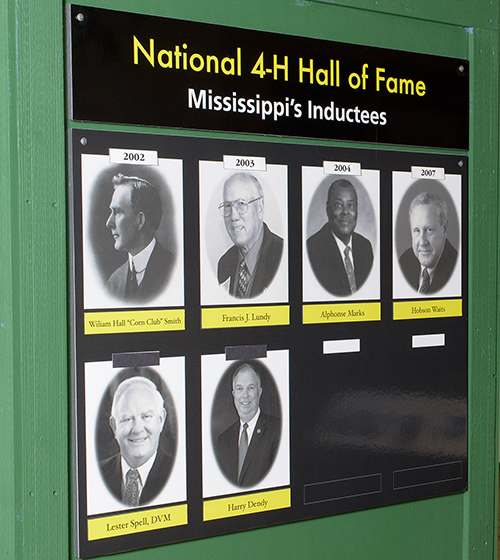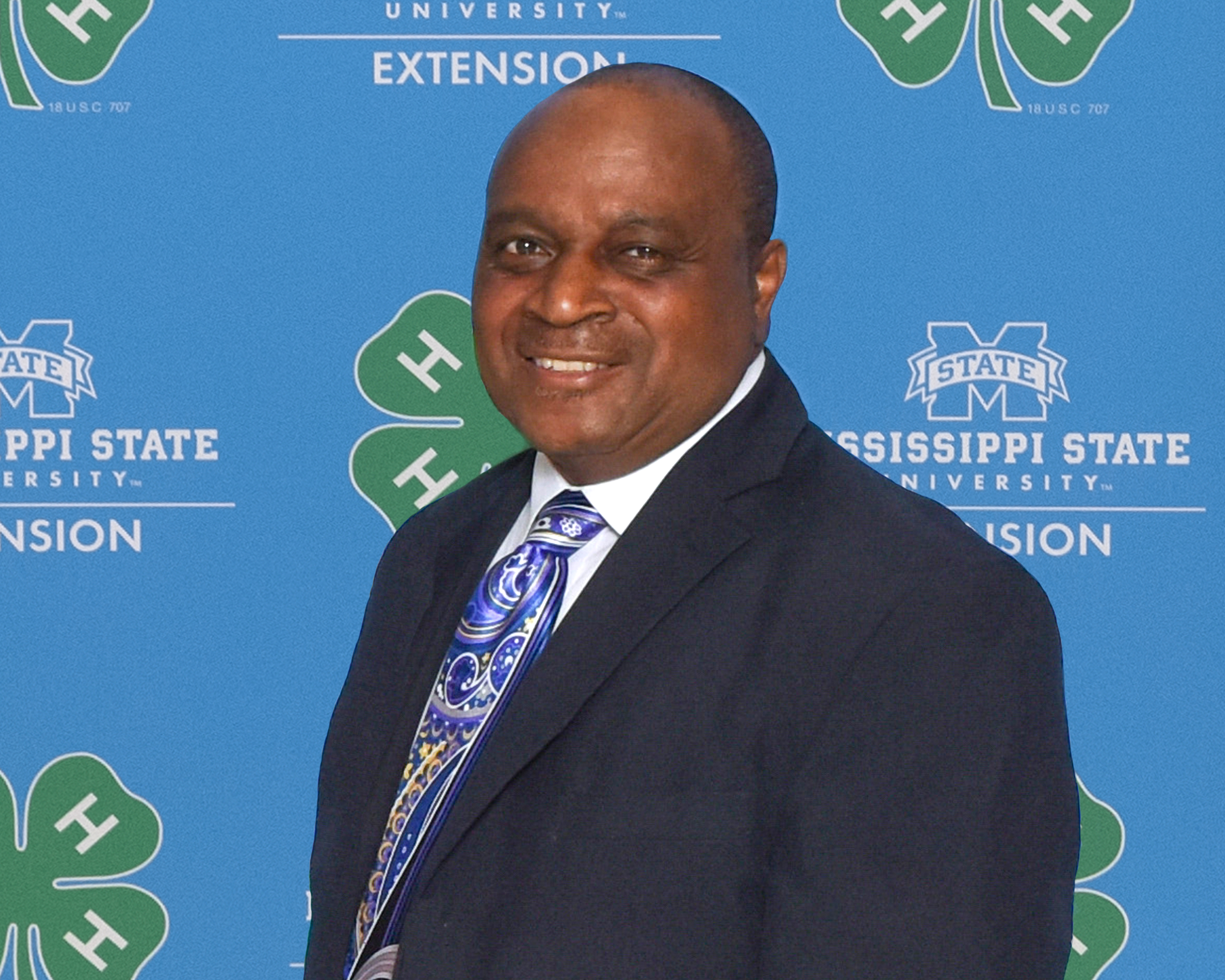National 4-H Hall of Fame Members
Seven Mississippians recognized for contributions to 4-H*
Compiled by Susan Collins-Smith and Leah Barbour · Photos by Kevin Hudson
William Hall “Corn Club” Smith
Inducted in 2002
Smith is recognized as the father of 4-H in Mississippi because of his efforts to establish the first clubs for students in Holmes County in 1907. As the superintendent of Holmes County Schools, he wanted to improve farm education and keep boys in school. He, with the help of volunteer corn growers and teachers, established a school contest where the boys grew corn. Eighty-two boys participated in the first contest, in which contestants earned ribbons and prize money. Smith’s standardized and consistent educational program was valued and adopted by Mississippi State College and the U.S. Department of Agriculture, making Mississippi’s clubs the first to have the federal government’s support. Appointed by Seaman Knapp, Smith served as a USDA collaborator for the program.
Francis J. Lundy
Inducted in 2003
Lundy loved 4-H from childhood and was an active member of 4-H in Neshoba County. In 1935, he won the state 4-H Wood Chopping Contest and always cherished the trophy ax. A lifelong supporter of the organization, he served on the State 4-H Advisory Council and the 4-H Club Foundation of Mississippi for more than 20 years. Lundy was foundation chair for 11 years, during which time 4-H membership and foundation assets grew. He and his wife, Emma Nell Lundy, personally contributed to 4-H every year and set up a $50,000 endowment for leadership development. He also helped garner corporate and legislative support for 4-H. Lundy’s success was a direct result of his love for the program and its members, who sent him notes every year that he displayed on his refrigerator.

Alphonse Marks
Inducted in 2004
Marks was a dedicated Extension agent in Pike County for 30 years. He was one of the first African American Extension agents in Mississippi and took a lead role in integrating races in Extension. Although he delivered agriculture and community resource development education, he had a passion for 4-H and mentoring young people. Among many other awards, Marks received six Extension distinguished and meritorious awards from his peers, recognizing his leadership, work ethic, and people skills. After retirement in 1977, he remained involved with 4-H as a volunteer leader and served in district and state organizations. In honor of his dedication to 4-H, a wing of the Mississippi 4-H museum bears his name. Marks was a member of the Mississippi 4-H Advisory Council and was the first vice president of the 4-H Club Foundation of Mississippi.
Hobson Waits
Inducted in 2007
Waits, of Brandon, believes in the power of 4-H because he’s seen the impact it has had on many lives.
“I have always been amazed at the number of successful individuals in all walks of life who have credited the contributions of 4-H experiences in their lives,” he says.
As a volunteer club leader, Waits took numerous young people to the National 4-H Congress in Chicago annually. He raised money for the 4-H Cooperative Business Leadership Conference each year, attained 63 acres of investment property, and raised money to help 4-H programs and members affected by Hurricane Katrina. He served on the 4-H Foundation Board of Trustees and was a 35-year member of the Mississippi 4-H Advisory Council. He helped establish 4-H Legislative Day and the Mississippi 4-H Learning Center and Pete Frierson 4-H Museum.
Lester Spell
Inducted in 2010
Spell, of Richland, was an active 4-H’er who showed swine and dairy. As an adult, he has remained committed to 4-H and its young people.
“4-H gave me many opportunities and experiences that I would never have had otherwise. In my career, I have tried to repay that debt by supporting 4-H,” he says.
His support and philanthropy through the years includes serving 35 years on the Mississippi 4-H Advisory Council, helping secure ground for the Mississippi 4-H museum and learning center, and personally donating annually to 4-H at the local and state levels. During his years as state agriculture commissioner, Spell supported many 4-H events held at the Mississippi State Fair, including livestock and horse shows, the 4-H Village, and the Dixie National Sale of Junior Champions.
Harry Dendy
Inducted in 2011
Dendy, of Clinton, has been involved with 4-H for more than 60 years—first as a member in Chickasaw County and then as an advocate and supporter. During his career with Farm Credit, he led the company’s youth-supporting activities and was a regular contributor to 4-H. Dendy has served as president of the Mississippi 4-H Advisory Council and vice-chair of the Mississippi 4-H Foundation Board of Trustees. He is dedicated to the organization because he credits 4-H with helping make him who he is.
“As a young person, 4-H taught me leadership, gave me a chance to interact and be competitive with others, and instilled in me a certain degree of self-confidence,” he says.
Dendy raises funds for State 4-H Congress and the Dixie National Sale of Junior Champions and was instrumental in the creation of the Mississippi 4-H Learning Center and Pete Frierson 4-H Museum.
Biographical information for these inductees was gathered from the National 4-H Hall of Fame website at http://4-H-hof.com.

Harvey Lee Gordon Sr.
Inducted in 2022
Originally from Leland in Washington County, Gordon served as a 4-H state specialist with the Mississippi State University Extension Service from 1997 until he retired in 2014. He died unexpectedly in 2021, but during his life, Gordon was a premier leader in 4-H and a warm and welcoming friend to all.
“He saw the struggles of young people and he wanted to help them become better,” Gordon’s widow, Ruby Gordon, says. “That is the theory behind 4-H, to make the best better.”
After he graduated from Alcorn State University, Gordon spent 38 years serving Extension, both in Mississippi, where he spent the final 17 years of his career, and in Arkansas, where he spent 21 years. Gordon’s legacy of influence lives on among the young people he worked with and the volunteers he recruited and trained.
*Updates added to original July 2019 article in July 2024.


